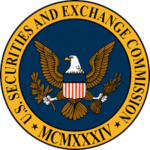
Grygo is the chief content officer for FTF & FTF News.
To say the least, the SEC has been busy for the past two years. Amid the flurry of new and revamped regulation was the recent adoption of “amendments to Form N-PX to enhance the information mutual funds, exchange-traded funds, and certain other registered funds report about their proxy votes.”
The SEC says the new rules and amendments for proxy disclosures — which take effect for votes on or after July 1, 2023 —will provide more transparency into fund and institutional investment manager proxy voting records. (By the way, the first filings that are subject to the amendments are due in 2024.)
In addition, the amendments are supposed to make the proxy voting records for these funds “more usable and easier to analyze, improving investors’ ability to monitor how their funds vote and compare different funds’ voting records,” according to the Nov. 2 announcement.
The new rules will also require “institutional investment managers to disclose how they voted on executive compensation, or so-called ‘say-on-pay’ matters, which fulfills one of the remaining rulemaking mandates under the Dodd-Frank Wall Street Reform and Consumer Protection Act,” according to the SEC.
Before the amendments, registered funds were required to disclose proxy voting records on Form N-PX, but investors “faced difficulties analyzing these reports,” according to the SEC. “For example, funds were not previously required to disclose votes in a consistent manner or in a format that is machine-readable.”
To help investors, the SEC will ask funds and managers to do the following:
- Categorize each matter by type and, where a form of proxy or proxy card subject to the SEC’s proxy rules is available, “tie the description and order of voting matters to the issuer’s form of proxy to help investors identify votes of interest and compare voting records;”
- Organize reports and “require them to use a structured data language to make the filings easier to analyze;”
- Disclose the “number of shares that were voted or instructed to be voted, as well as the number of shares loaned and not recalled and thus not voted. This latter requirement is designed to provide shareholders with context to understand how securities lending activities could affect a fund’s or manager’s proxy voting practices.”
The new proxy disclosure regime did not get unanimous support — the Republican Commissioners Hester M. Peirce and Mark T. Uyeda voted against the changes while SEC Chair Gary Gensler, Commissioner Caroline A. Crenshaw, and Commissioner Jaime Lizárraga voted for them.

Caroline A. Crenshaw
Reflecting the prevailing opinion of the commissioners, Crenshaw says the passage of the amendments will give investors “better insight into fund governance of portfolio companies, which can improve shareholder value. Additionally, investors can further distinguish voting practices or share lending practices among different funds or verify fund claims of active stewardship.”
The amendments will also be “a deterrent to fund advisers who might be motivated to vote corporate proxies based on their own economic or personal interests, rather than those of their investors,” Crenshaw says via her statement.
Peirce has other ideas.
“If we had confined ourselves simply to implementing the Dodd-Frank mandate on say-on-pay reporting for institutional investment managers, I would have supported this rulemaking,” Peirce says in her statement, underscoring why she voted against the changes.
“If we had paired that additional reporting obligation with an elimination of the 2003 rule to mandate the disclosure of proxy votes for funds, I would have supported this rulemaking with great enthusiasm. Rather than eliminating the 2003 mandate, however, we are expanding it. The expansion will serve the needs of third parties eager to pressure funds to vote their way, but will harm funds and fund investors,” Peirce argues.
Her statement includes several other concerns, and a focus on the cost of the amended rule.
“The Commission is too enthusiastic about the rule’s purported benefits to pay much attention to its costs. For instance, in response to commenters’ concerns that some custodians do not provide the information managers will need to report the number of unrecalled securities, we suggested that disadvantaged managers engage their custodians to obtain it,” Peirce says.
“Assuming custodians and securities lending agents are willing to provide this added service, fees will most certainly go up. Large fund managers will be able to absorb these additional costs or pass them along to clients, but smaller managers will be at a distinct disadvantage. The complicated manner in which we will assess who holds voting power also is destined to create confusion and generate costs,” Peirce says.
 It’s possible that approving the amendments may not actually put an end to the controversy.
It’s possible that approving the amendments may not actually put an end to the controversy.
However, there was one area of consensus — every SEC commissioner praised the work of the behind-the-scenes staff members who have been working overtime to get the proxy disclosure rule and others ready in record time.
“Even if some of the policy choices embedded in these rules are not choices I would have made, I marvel at the staff’s work,” Peirce says.
Need a Reprint?